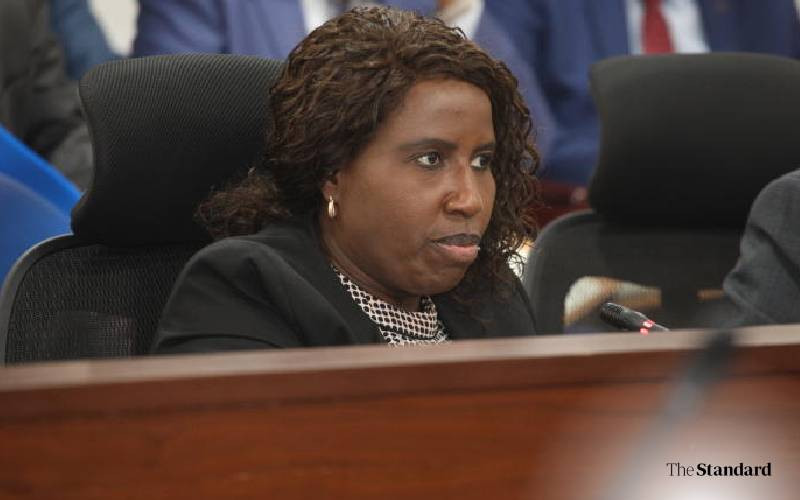The Council of Governors is considering moving to court to repeal the law that shields Kenya Power and Lighting Company from paying for wayleaves running into billions of shillings.
Senators who are in support of Governors are considering amending the law which they term as not being in the best interest of devolution and if approved will be a huge set back to KPLC.
Nairobi Governor Johnson Sakaja told the Senate Energy Committee that all the 47 County Chiefs have resolved to move to court to ensure that the power provider they are accused of switching off electricity in critical installations. Over electricity bills is held to account.
“In the case of Nairobi County, while KPLC demands Sh1.5 billion for unpaid electricity bills, the county government needs Sh4.7 billion from the company for unpaid wayleave charges, which they should pay the same way they expect us to pay electricity bills,” said Sakaja.
Nairobi Senator Edwin Sifuna said the senators have resolved to amend the Energy Act 2019 to make it mandatory for Kenya Power to pay for power line wayleaves charges since this will enable the devolved units to get the much-needed revenue to continue providing services.
“We have decided the Senate that we are going to amend this law, while we want the county government to be make good use of public funds, we cannot allow the national government to deny the counties revenue,” said Sifuna.
The Governor had come before the Senate Energy Committee for deliberation over a dispute between KPLC and the City County, which led to an ugly engagement that led to the dumping of garbage at the headquarters of the power provider that caused an uproar among citizens.
Section 223 of the Energy Act provides that no public body shall charge levies on public energy infrastructure without the consent of the Cabinet Secretary in writing, however, governors argue that the law was passed in 2019 and therefore should not and cannot be applied retrogressively.
Sakaja said that the KPLC is deriving commercial benefits from the use of the wayleaves besides laying their infrastructure and has been collecting millions of shillings from the internet service providers who are laying their fiber optic cable.
“Recently, Kenya Power announced a Sh400 million deal with Safaricom. They are getting a lot of money that money should go to counties, but KPLC is taking it, which should not be the case; that is why we want them to pay for wayleaves,” said Sakaja.
Kenya Power last month pointed out that paying for power line wayleaves would increase the country’s energy costs by 30 percent, translating to an additional Sh63.8 billion annually, and that the extra costs will be passed on to consumers, leading to significantly higher electricity bills.
Kenya Power Managing Director Joseph Siror said that while the stronger shilling has reduced costs related to foreign exchange and fuel, the proposed wayleave charges could reverse recent electricity price declines.
The warning comes after Nairobi County recently slapped Kenya Power with a Sh5 billion wayleave debt, following the utility’s demand for payment of the county’s electricity bill amounting to Sh 1.5 billion.
Stay informed. Subscribe to our newsletter
However, Sakaja argued that the threat that payment for wayleave would lead to an increase in electricity bills is selfish and insincere, saying that KPLC is in business, which is co-owned by the government and private individuals.
A power line wayleave allows utility firms to legally install, maintain, and repair power lines on private land.
























